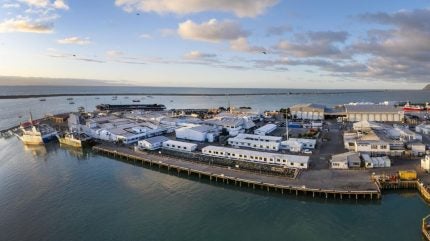
New Zealand seafood processor Sealord has updated staff on potential job losses as it reviews moving to a seasonal operating pattern.
Under the proposal announced today (26 September), Sealord’s wet fish and by-products plants, and the fishing vessel Thomas Harrison, would operate from May to September to align with the peak hoki catch season instead of the whole year.
The seafood company said it has begun consultations with affected employees on the plan, which would see 59 positions “disestablished” if implemented.

Discover B2B Marketing That Performs
Combine business intelligence and editorial excellence to reach engaged professionals across 36 leading media platforms.
Earlier in September, Sealord signaled the potential closure of its coated-fish plant in the port city of Nelson, a move it said at the time would put 79 roles at risk.
In today’s statement, Sealord said it was “potentially facing a full shut down of its fresh fish trawler and all land-based operations at its Nelson site”.
CEO Doug Paulin explained: “Instead of closing our Nelson site completely, which would impact significantly more permanent employees and be a major economic hit for the region, this seasonal proposal would mean that we’re able to retain the majority of our Nelson-based operations and the jobs associated with them.”
If adopted, the group said it would keep 81 permanent roles and 400 seasonal positions.

US Tariffs are shifting - will you react or anticipate?
Don’t let policy changes catch you off guard. Stay proactive with real-time data and expert analysis.
By GlobalDataA decision on whether to shift to seasonal operations is expected in mid-October. Meanwhile, Sealord said consultations on the proposed closure of the Nelson coated-fish factory concluded today, with a final decision due on 3 October.
Paulin reiterated the challenges the business is facing, with the reviews “driven by the need to adapt to the challenging economic environment with escalating operating costs, deflated global commodity pricing for frozen fish, decreasing volume and ever-increasing regulatory compliance costs over the last ten years”.
He added: “The export commodity products produced in our wet fish factory in Nelson are loss-making in every month except for in hoki season.
“This loss has been exacerbated in recent times with price drops at the same time as costs have risen sharply and the volume of fish available to be harvested and processed outside of hoki season has fallen.”
The transition to a seasonal operation “reduces our operating costs, increases returns from these commodity export products to a viable level and allows us to invest” in catching and processing fish during the hoki season, Paulin said.
The CEO went on to say that for Sealord to be economically sustainable in the long run, “we must reduce our costs and decrease complexity to focus on our core business of fishing”.
The company has faced challenges at its Nelson operations before.
In 2014, it announced plans to cut 97 jobs at its wet fish processing site, stating that the factory was “not economically viable” in its existing form.
At the time, the firm proposed shifting to a smaller operation focused on higher-value products.
Meanwhile, in 2023, Sealord acquired Independent Fisheries, becoming New Zealand’s largest seafood business.





